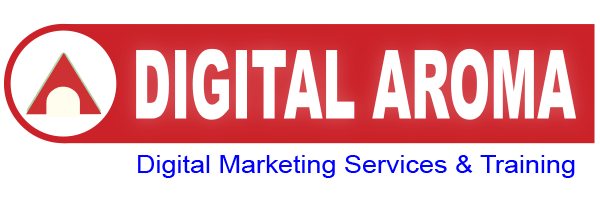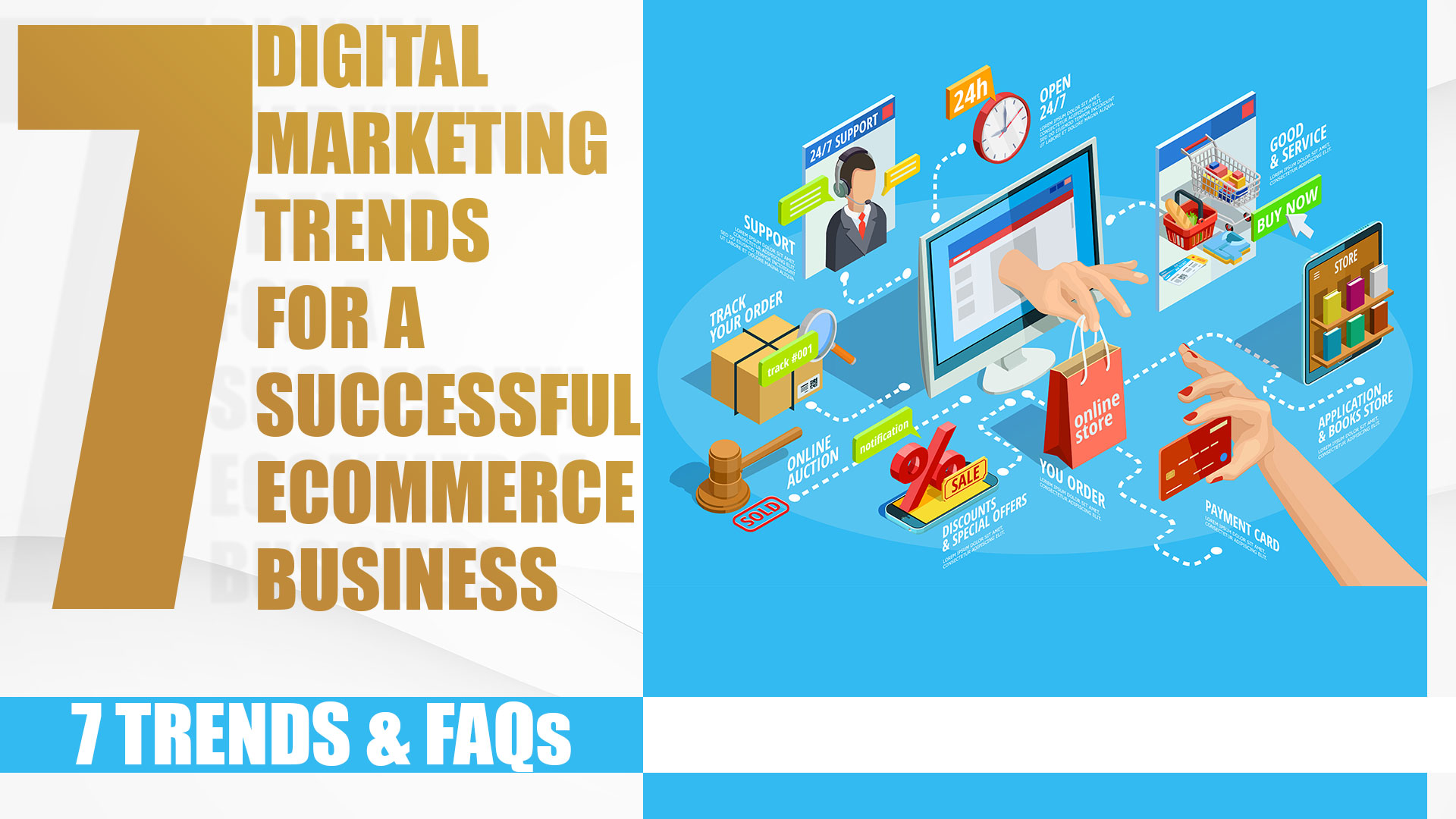As the world becomes increasingly reliant on technology, digital marketing is rapidly evolving to keep up with changing consumer behaviours. For ecommerce businesses, staying ahead of the curve is key to success in an ever-competitive landscape. From social media ads to personalized content, there are countless strategies that can help drive traffic and boost sales.
In this article, we’ll explore seven digital marketing trends that every ecommerce business should consider implementing for optimal results. These trends have proven effective in driving engagement and conversions across a variety of industries and niches. By incorporating these tactics into your own marketing strategy, you can stay ahead of competitors while better serving your target audience.
Whether you’re just starting out or looking to revamp your existing marketing plan, our guide will provide valuable insights and practical tips for maximizing the potential of your ecommerce business. So grab a cup of coffee and get ready to dive into the latest trends shaping the future of digital marketing!
Blog Content
1) How Digital Marketing Helps A Ecommerce Business?
2) 7 Digital Marketing Trends For A Successful Ecommerce Business
3) Leverage Social Media For Sales
4) FAQs
5) Conclusion
How Digital Marketing Helps A Ecommerce Business?
As the world moves towards digitalization, businesses have been forced to adapt and embrace this trend. One of the ways in which ecommerce business can thrive is through digital marketing. Digital marketing has become a crucial aspect of building and maintaining a successful ecommerce business.
Through various digital channels such as social media, email campaigns, search engines, and mobile applications, businesses can reach out to potential customers worldwide. With millions of people spending most of their time online today, it only makes sense that companies take advantage of these platforms.
Digital marketing allows for targeted advertising based on demographics such as age, location, interests, or behaviour patterns. This ensures that your message reaches the right audience at the right time when they are most likely to engage with your product or service. As a result, you are more likely to generate leads and convert them into paying customers.
Moreover, digital marketing provides instantaneous feedback from customers through reviews and ratings across different platforms. This information helps businesses improve their products/services while also building brand reputation.
Incorporating digital marketing strategies into an ecommerce business not only increases visibility but also enhances the customer experience by providing personalized content tailored to individual needs. By doing so, businesses can create loyal customers who will keep coming back for more.
The benefits of utilizing digital marketing in ecommerce business are endless. In the subsequent section about ‘digital marketing trends for a successful ecommerce business,’ we will delve deeper into some emerging trends that could help take your ecommerce business to greater heights!
7 Digital Marketing Trends For A Successful Ecommerce Business
To stay competitive in the digital age, ecommerce businesses must keep up with the latest trends in digital marketing. By implementing these strategies, online retailers can increase brand awareness, drive traffic to their sites, and boost sales.
Firstly, it is essential to optimize your website for mobile devices. With more people using smartphones and tablets to shop online than ever before, having a mobile-friendly site is crucial for success. Secondly, investing in SEO (search engine optimization) can help you rank higher on search engines like Google and attract more organic traffic to your site.
Thirdly, social media remains an essential tool for driving engagement and building relationships with customers. By creating compelling content that resonates with your target audience on platforms such as Facebook, Instagram, and Twitter, you can increase brand loyalty and generate leads.
Fourthly, email marketing continues to be an effective way of reaching out to potential customers directly. By segmenting your email list based on customer behaviour and interests, you can send personalized messages that resonate with individual recipients.
Fifthly, video marketing is becoming increasingly popular among ecommerce businesses looking to create engaging content that showcases their products or services. Whether through product demos or behind-the-scenes footage of your team at work, video can add depth to your brand messaging.
Sixthly, influencer marketing involves partnering with individuals who have large followings on social media to promote your products or services. This approach allows you to tap into new audiences while leveraging the credibility of established influencers within your industry.
Finally, investing in immersive experiences such as augmented reality (AR) or virtual reality (VR) technology offers unique ways of showcasing products and enhancing the customer experience. For example, AR-enabled apps allow shoppers to try on clothes virtually before making a purchase decision.
By incorporating these digital marketing trends into their overall strategy, ecommerce businesses can stay ahead of the curve and achieve long-term growth and success without breaking the bank!
Leverage Social Media For Sales
Social media has become an indispensable tool in the world of ecommerce. A successful ecommerce business needs to tap into this potential and leverage social media for sales. With billions of active users on various social media platforms, businesses can reach out to a massive audience and convert them into loyal customers.
Firstly, understand your target audience and choose the right social media channels that align with their preferences. For example, if you are targeting young adults, then Instagram is the perfect platform to showcase your products through visually appealing content. Secondly, engage with your followers by responding to comments and messages promptly. This helps build trust and strengthens customer relationships. Lastly, create a sense of urgency by running limited-time promotions or flash sales exclusively for your social media followers.
In addition to these tips, here are three more ways to make the most of leveraging social media for sales:
Collaborate with influencers who have a vast following on social media. Influencers can help promote your brand effectively as they have built credibility among their followers.
Use paid advertising options available on different platforms such as Facebook Ads or Twitter Ads to increase visibility and drive traffic towards your website.
Create engaging and shareable content that resonates with your target audience’s interests while also showcasing your products.
By making use of these strategies, ecommerce businesses can level up their presence on social media platforms and reap the benefits of increased sales revenue without breaking the bank.
In conclusion, it’s crucial for any successful ecommerce business to integrate social media marketing into its overall digital strategy. Using signposts like ‘firstly,’ ‘secondly,’ ‘lastly’ makes it easier for readers to follow along with each point made within paragraphs. Furthermore, bullet points enhance readability by breaking down information into easy-to-digest chunks. By following these guidelines, ecommerce businesses will be able to take advantage of all that social media has to offer in terms of generating leads and driving conversions online.
Frequently Asked Questions
How Can I Measure The Success Of My Digital Marketing Efforts For My Ecommerce Business?
Are you struggling to measure the success of your digital marketing efforts for your ecommerce business? Don’t worry, you’re not alone. With so many different metrics and tools available, it can be overwhelming to determine what’s truly important.
Firstly, it’s essential to establish clear goals for your digital marketing campaign. Are you aiming to increase website traffic or boost sales? Once these objectives are defined, you can then identify which specific metrics align with each goal. For example, tracking conversion rates will help determine how successful your online store is at converting visitors into customers.
It’s also crucial to regularly analyze data to make informed decisions about future campaigns. Utilizing Google Analytics or other analytical tools will provide valuable insights into consumer behavior and trends in real-time. Additionally, monitoring social media engagement and email open rates can give insight into the effectiveness of your messaging and communication strategies.
Remember that measuring success isn’t just about numbers and statistics – it’s also about understanding your audience and continuously adapting your approach to better meet their needs. By staying up-to-date on industry trends and customer feedback, you’ll be able to create a more personalized experience that drives long-term loyalty and revenue growth.
So don’t get discouraged if measuring success feels like an uphill battle – with a little patience, persistence, and willingness to adapt, you’ll be well on your way towards achieving digital marketing success for your ecommerce business.
What Are Some Common Mistakes To Avoid When Implementing Digital Marketing Strategies For Ecommerce?
As an ecommerce business owner, you understand the importance of digital marketing strategies in driving traffic and sales to your online store. However, even with the best intentions, it’s easy to make mistakes that can hinder your success. To illustrate this point, let me share a story about my friend who owns an online clothing store.
My friend was excited to launch her new collection and spent a significant amount on Facebook ads targeting women aged 18-35. She received many clicks but hardly any conversions. After analyzing her website analytics data, she realized that most of the visitors were leaving after just a few seconds because they couldn’t find what they were looking for easily – the navigation was confusing!
This is just one example of a common mistake when implementing digital marketing strategies for ecommerce: overlooking user experience (UX) design. Other errors include not optimizing product images or not having clear calls-to-action (CTAs). It’s important to remember that UX design plays a crucial role in converting visitors into customers.
Another mistake is neglecting search engine optimization (SEO) by not using relevant keywords or not creating quality content regularly. Without SEO efforts, your site may never appear on Google’s first page of results, which means potential customers will have difficulty finding you.
In conclusion, avoiding these common mistakes can help ensure the success of your digital marketing strategies for ecommerce. Remember to prioritize UX design and SEO efforts while also monitoring metrics such as bounce rate and conversion rates regularly. By doing so, you’ll be able to continuously improve and grow your online business effectively!
Can Traditional Marketing Methods Still Be Effective For Ecommerce Businesses In Today’s Digital Age?
As technology continues to evolve and shape our world, it’s no surprise that digital marketing has become a crucial component in the success of ecommerce businesses. However, with so much emphasis placed on online advertising, some may wonder whether traditional marketing methods still have a place in today’s digital age.
The answer is yes – while digital marketing techniques are incredibly effective for reaching wider audiences and increasing brand visibility online, they shouldn’t be used as an alternative to traditional methods. By combining both approaches, ecommerce businesses can achieve even greater results when it comes to promoting their products or services.
Here are four reasons why traditional marketing methods should not be overlooked:
They provide a more personal touch: While digital ads can reach thousands of people at once, traditional methods such as direct mail or print advertisements offer a more personalized experience. Receiving something tangible in the post or seeing an advertisement in a magazine can feel more intimate than simply scrolling past an ad on social media.
They allow you to target specific demographics: Traditional marketing offers the ability to hone in on specific groups of people who are most likely to be interested in your product or service. For example, if you’re selling luxury goods aimed at older generations, placing advertisements in newspapers or magazines aimed at this demographic could yield better results than relying solely on online ads.
They build trust and credibility: Seeing your brand advertised across multiple channels creates a sense of familiarity with potential customers. This builds trust and establishes credibility within your industry. It also helps reinforce your message by giving consumers several opportunities to see it from different sources.
They create physical reminders: Finally, one advantage of using traditional marketing alongside digital strategies is that it provides physical reminders of your brand. Whether it’s through branded merchandise or flyers handed out at events, having something tangible that customers can hold onto keeps your business top-of-mind.
So although digital marketing techniques are essential for any ecommerce business looking to succeed in today’s digitally-driven world, don’t overlook the power of tried-and-tested traditional methods too!
Know More On the Importance of Digital Marketing for E-Commerce Business
Conclusion
Digital marketing is a must-have for any ecommerce business looking to succeed. By using creative and effective strategies, companies can establish an online presence that attracts and retains customers. From creating engaging experiences to utilizing social media for sales, there are countless trends that businesses can tap into when developing their digital marketing plan.
Let’s take a look at a real-life example of the impact of these trends. There was a small boutique clothing store that was struggling to get customers until they started using Instagram as a marketing tool. By posting high-quality photos showcasing their products on the platform, they were able to reach a wider audience and increase sales by a whopping 50%!
This just goes to show that digital marketing can make a huge difference even for the smallest of ecommerce businesses, making it a vital component for entrepreneurs looking to stand out in today’s competitive marketplace.


